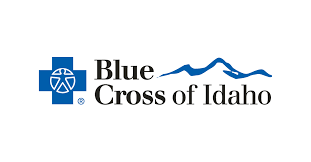The Role of Health Savings Accounts and How Does It Works?
Health Savings Accounts (HSAs) let you save for medical expenses with great tax benefits. To qualify, you need a High-Deductible Health Plan (HDHP) and can’t be claimed as a dependent. You enjoy tax-deductible contributions, tax-free growth, and tax-free withdrawals for medical expenses.
Use your HSA funds for things like deductibles, copayments, and prescriptions, accessible via debit card, check, or transfer. Your money can earn interest or be invested for potential growth, and any unused balance rolls over each year. After 65, you can use the funds penalty-free for any expense.
Understanding the full scope of how HSAs can benefit you financially might open new avenues for managing your healthcare costs effectively. Feel free to contact Chris Antrim Insurance for all your inquiries.
Contact Us
Key Takeaways
- HSAs are tax-advantaged savings accounts for medical expenses for those enrolled in high-deductible health plans (HDHPs).
- Contributions to HSAs are tax-deductible, and the funds grow tax-free.
- HSA funds can be used for a wide range of qualified medical expenses, including deductibles, copayments, and prescriptions.
- There are no time restrictions on when HSA funds must be used, allowing for rollover of unused balances year to year.
- After age 65, funds can be withdrawn for any purpose without penalty, though non-medical withdrawals are subject to income tax.
Understanding HSAs
Health Savings Accounts (HSAs) let you set aside pre-tax dollars for future medical expenses, offering both flexibility and tax advantages. When you’re enrolled in a high deductible health plan (HDHP), an HSA becomes a powerful tool to help you manage your healthcare costs. The beauty of an HSA lies in its dual tax advantage: your contributions are tax-deductible, and the money grows tax-free. This means you can save more of your hard-earned money while preparing for medical expenses.
HSAs aren’t just about saving for doctor’s visits or emergency room trips; they offer an array of investment options, turning your contributions into a growing nest egg for future medical needs. Whether you’re facing high deductibles now or anticipating healthcare expenses later, an HSA provides a cushion to offset those costs. Moreover, the flexibility in spending is a significant perk. You can use the funds for a wide range of qualified medical expenses, ensuring you’re covered for both expected and unexpected healthcare needs.
Employer contributions can further bolster your HSA, making it an even more attractive option for saving on healthcare. Unlike flexible spending accounts, HSAs don’t have a use-it-or-lose-it rule, allowing your savings to accumulate year after year. This feature makes HSAs a smart choice for anyone looking to maximize their healthcare savings while enjoying tax benefits.
Eligibility and Contributions
To start contributing to an HSA, you must first be enrolled in a qualifying High Deductible Health Plan (HDHP). This is the foundation of your eligibility. Once you’re part of a qualified HDHP, you, your employer, or anyone else can contribute to your HSA, but there’s a catch. You’re ineligible to contribute if you’re claimed as a dependent on another person’s tax return. This ensures that HSAs are utilized by those directly responsible for their own healthcare expenses.
The IRS sets annual limits on how much can be contributed to your HSA, ensuring that these accounts are used within reasonable financial boundaries. For those of you 55 and older, there’s an added perk: you’re allowed to make additional catch-up contributions, giving you a boost in your health savings as you near retirement.
HSA contributions come with potential tax advantages, including tax-free contributions. This aspect is particularly appealing as it can lead to significant tax savings over time. Remember, the primary aim of HSAs is to offer you a tax-advantaged way to save for medical expenses, leveraging these annual limits and catch-up contributions to maximize your potential benefits.
Utilizing HSA Funds
Now that you understand how to contribute to an HSA, let’s look at how you can use those funds for medical expenses. Your health savings account (HSA) is a powerful tool to pay for medical expenses directly related to your health care costs. You can use HSA funds for a wide array of qualified medical expenses, including deductibles, copayments, coinsurance, prescription drugs, and even some over-the-counter medications with a doctor’s prescription. Additionally, expenses for vision and dental care, as well as services like acupuncture or chiropractic care, are also covered.
Accessing your HSA contributions is straightforward, with options like a debit card, checkbook, or direct transfer to a regular bank account, making it easy to manage your health care costs without hassle. The beauty of an HSA is there are no time restrictions on using the funds. This means you can save money now and use it for future medical expenses, ensuring you’re always prepared for health-related costs. Plus, any unused balances can be rolled over year to year, offering a flexible way to save and pay for medical expenses, all while benefiting from tax advantages as long as you’re eligible to contribute to an HSA.
Investment and Growth
Your HSA isn’t just for immediate medical expenses; it’s also an investment vehicle that can grow your savings tax-free for future use. By maintaining a minimum balance, you unlock the ability to have your money earn interest or be invested in stocks, bonds, and funds. This can significantly amplify your long-term financial growth, allowing you to build a nest egg for retirement expenses, all while enjoying the benefits of tax-free growth.
Investing through your HSA offers flexibility and the potential for your savings to outpace inflation, making it a powerful tool for securing financial stability in retirement. Remember, HSA funds can be used penalty-free for qualified medical expenses, making it a versatile option for managing healthcare costs now and in the future.
| Benefit | Description |
|---|---|
| Tax-Free Growth | Investments grow without tax implications. |
| Flexible Investments | Options include stocks, bonds, and funds. |
| Long-term Savings | Build a nest egg for future healthcare costs. |
| Penalty-Free Withdrawals | For qualified medical expenses in retirement. |
| Annual Rollovers | Unused balances carry over, continuing to grow tax-free. |
This table highlights the unique advantages of using your HSA as an investment tool, emphasizing its role in not just covering current medical expenses but also securing your financial future.
HSAs in Retirement
HSAs become even more versatile in retirement, allowing you to use funds penalty-free for any purpose after age 65. At this stage in your life, you’ve likely accumulated a substantial balance, and the rules around HSAs shift to offer you more flexibility. Before 65, withdrawals for non-medical expenses come with a hefty penalty. But once you hit retirement age, that penalty disappears, making your HSA funds available for whatever you need, whether that’s medical expenses or living costs.
However, the real magic of HSAs in retirement lies in their ability to cover qualified medical expenses, including Medicare premiums (Part B, Part D, and Part C), completely tax-free. This feature makes HSAs a powerful tool for managing healthcare costs in retirement, where such expenses can be a significant burden.
Furthermore, the flexibility of HSAs doesn’t end there. There are no time restrictions on when you must use your funds, allowing you to plan strategically for your retirement expenses. And if you’re thinking about the legacy you’ll leave, any remaining HSA assets can transfer to your spouse tax-free upon your death, ensuring that the benefits of your savings extend beyond your lifetime.
More Information Regarding Your HSA at Chris Antrim Insurance
With its special combination of tax benefits and flexibility, health savings accounts (HSAs) enable people to invest for future medical needs in addition to saving for present medical costs. Discover how investments, withdrawals, and contributions work together to create this powerful instrument that will enable you to take financial control over your healthcare more than ever.
In a delightful twist of fate, you’ve now unraveled the mysteries of Health Savings Accounts (HSAs). By understanding
eligibility and smartly contributing, you’re setting yourself up for a healthier future. Utilizing HSA funds wisely today means you’re
investing in tomorrow, seeing your savings potentially grow over time. And when
retirement comes knocking, you’ll find your HSA to be a
reliable friend, supporting your health needs without straining your finances. It’s a seamless blend of planning, saving, and spending, all for your well-being.












